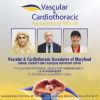- 1-Emotional-Wellbeing-Impact-on-Heart-Health
- 2-Stress-and-Its-Role-in-Heart-Disease
- 3-Depression-Anxiety-and-Cardiovascular-Risk
- 4-Managing-Emotions-to-Protect-Heart-Health
- 5-Real-Life-Stories-Showing-Heart-and-Emotions-Link
- 6-Professional-Advice-and-Resources-for-Support
1. How Emotional Wellbeing Directly Influences Heart Health
The relationship between heart disease and emotional wellbeing is profound and increasingly recognized by healthcare professionals worldwide. Emotions such as chronic stress, anxiety, and depression don’t just affect mental health—they have a tangible impact on cardiovascular function. For instance, sustained emotional distress can lead to elevated blood pressure, increased heart rate, and inflammation, all of which are significant risk factors for heart disease.
Emotional wellbeing shapes lifestyle choices that directly affect heart health as well. People experiencing poor mental health might neglect exercise, consume unhealthy diets, or engage in smoking and excessive alcohol use, further exacerbating heart risks. This interconnectedness highlights why heart disease cannot be fully addressed without considering emotional health.
Understanding this complex interplay encourages a holistic approach to treatment and prevention. By promoting emotional wellbeing alongside physical health, patients can improve overall quality of life and reduce cardiovascular complications effectively.

1.1 The Physiological Link Between Emotions and the Heart
When the body perceives stress or negative emotions, it releases hormones like cortisol and adrenaline. These hormones prepare the body for a “fight or flight” response, causing increased heart rate and constricted blood vessels. While beneficial in short bursts, chronic activation of this response damages the cardiovascular system over time, contributing to conditions such as hypertension and atherosclerosis.
Atlanta Heart Specialists
atlanta heart specialists
4375 Johns Creek Pkwy #350, Suwanee, GA 30024, USA

2. Stress and Its Role in Heart Disease Development
Stress is one of the most common emotional triggers linked to heart disease. Whether stemming from work pressures, financial worries, or personal relationships, chronic stress taxes the heart continuously. Research shows that individuals under persistent stress have a higher likelihood of developing coronary artery disease and experiencing heart attacks.
Stress also impacts behaviors that indirectly affect heart health. For example, stressed individuals may sleep poorly, overeat comfort foods, or skip medications. Recognizing stress as both a psychological and physiological risk factor is crucial for effective heart disease management.
Innovative stress-reduction techniques such as mindfulness meditation, yoga, and cognitive behavioral therapy (CBT) have demonstrated promising results in lowering blood pressure and improving heart function.
3. Depression, Anxiety, and Increased Cardiovascular Risk
Beyond stress, depression and anxiety disorders significantly increase the risk of heart disease. Studies indicate that people with depression are nearly twice as likely to develop coronary heart disease compared to those without. Anxiety can trigger arrhythmias and other heart rhythm problems, further endangering cardiovascular health.
The biological mechanisms underlying this connection involve inflammatory responses and impaired autonomic nervous system regulation. Additionally, mental health conditions may reduce motivation to adhere to medical advice or healthy lifestyle changes, compounding risk.
3.1 Recognizing Emotional Symptoms in Heart Patients
Many heart patients experience feelings of sadness, hopelessness, or panic without understanding their impact on recovery. Health professionals encourage screening for mental health symptoms during cardiac care to provide timely psychological support.
4. Practical Ways to Manage Emotions for Better Heart Health
Addressing emotional wellbeing as part of heart disease prevention and treatment involves several practical strategies. Regular physical activity is proven to reduce stress hormones and improve mood. Activities like walking, swimming, or gentle yoga can be incorporated based on individual ability.
Building social support networks also strengthens emotional resilience. Sharing feelings with trusted friends or support groups diminishes isolation and improves coping skills. Additionally, professional counseling or therapy can equip patients with tools to manage anxiety or depression effectively.
Nutrition plays a role as well, with diets rich in omega-3 fatty acids, antioxidants, and whole foods supporting brain and heart health simultaneously.
5. Real-Life Stories Illustrating the Link Between Heart Disease and Emotional Wellbeing
Consider James, a 58-year-old who survived a heart attack after years of ignoring his mounting stress and anxiety from a high-pressure job. His doctors emphasized that managing his emotional wellbeing would be key to preventing future cardiac events. James adopted mindfulness practices and joined a local support group, which helped him maintain heart-healthy habits and improved his overall outlook.
Another story is of Maria, who battled depression following her diagnosis of congestive heart failure. Through therapy and lifestyle changes recommended by her care team, Maria gradually regained emotional balance, which coincided with better control of her heart condition.
These stories exemplify how emotional wellbeing and heart health are intertwined, emphasizing the need for integrated care approaches.
6. Expert Advice and Resources to Support Heart and Emotional Health
Medical experts increasingly advocate for combining cardiology with mental health services to enhance patient outcomes. Regular screening for anxiety and depression during cardiac check-ups is becoming standard practice. Techniques such as biofeedback, relaxation training, and medication when appropriate are valuable tools.
For those seeking comprehensive support, HeartCare Hub offers resources tailored to managing heart disease alongside emotional wellbeing. Their curated selection of products, professional services, and educational materials can help individuals take proactive steps toward holistic heart health.
Ultimately, understanding and nurturing emotional wellbeing is indispensable for anyone concerned about heart disease. By embracing a balanced approach, patients and caregivers can unlock a healthier, more fulfilling life.





















Deborah Heart and Lung Center
deborah heart and lung center
200 Trenton Rd, Browns Mills, NJ 08015, USA